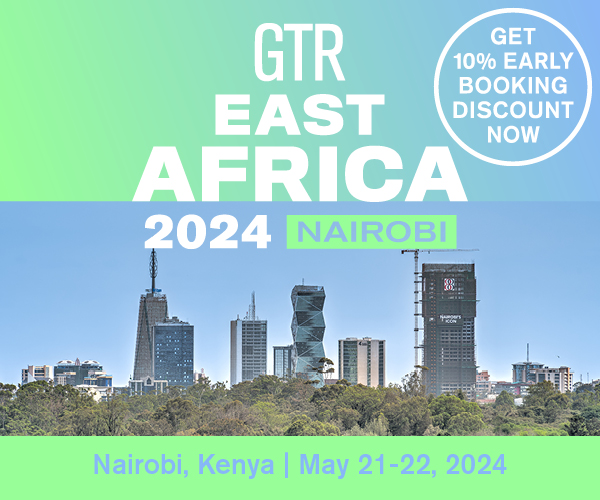
The controversy surrounding metals tycoon Sanjeev Gupta has shone a light on the use of trade transactions primarily as a means of generating liquidity. John Basquill examines internal documents and leaked correspondence showing the inner workings of Gupta’s empire, and explores the growing nervousness among authorities and banks around circular trades, repo deals and related-party transactions.
Back-to-back transactions have long been a staple of the commodity finance market.
By purchasing and immediately reselling cargo, a trader can boost its access to liquidity – reducing the risk of being stranded with illiquid assets and improving its ability to pay off debts as they fall due.
In some cases, back-to-back sales are circular, with the cargo ending up back in the hands of the initial seller. Though that seller will likely pay a higher price to repurchase the cargo, it has gained vital access to working capital in the meantime. Similar arrangements include repurchase agreements, or repo deals, for a trader’s inventory.
Using trade transactions primarily as a means of generating liquidity is a controversial practice, however. Several fraud scandals in the trade and commodity finance market have arisen from traders forging documents in order to raise financing against trades where the underlying cargo does not exist, or has already been pledged in a different transaction.
In the case of Liberty Commodities – the trading arm of metals tycoon Sanjeev Gupta, with entities across Europe, the Middle East, the US and the Asia Pacific region – the use of related-party trades has increasingly caught the eye of government officials.
In some cases, transactions were arranged involving different members of Gupta’s GFG Alliance – a loose network of companies involved in trading and producing steel, aluminium and renewables. Others involved so-called “friends of Sanjeev”, a term used by Liberty employees to discuss business associates who are not considered part of the alliance.
The March 2021 collapse of Greensill – by far the largest financial backer of GFG Alliance companies – has placed a strain on Gupta’s business. In October 2021, Argus Media revealed that Liberty Commodities was being wound down, and a GFG spokesperson has since told GTR the wider group “has made a strategic decision to exit commodity trading”.
“Our trading teams are being integrated where possible into our industrial sales, marketing and procurement functions. GFG continues to make significant progress to restructure and transform its businesses following the collapse of Greensill,” the spokesperson says.
As of press time, those refinancing efforts are still ongoing. A deal struck with Credit Suisse Asset Management in Australia has given an injection of liquidity that is being used to restart UK-based production, but the group remains beyond the risk appetite of many private and public sector lenders.
One complication is industry concern over Liberty-linked trades that have taken place between related parties, or where cargo appears to have been traded primarily for the purposes of raising liquidity. Though not illegal, similar structures have been involved in fraud scandals in Singapore, and appear to be falling out of favour with commodity finance banks.
Inside a Liberty Commodities transaction
GTR has obtained trade documentation and internal correspondence that show the inner workings of a metals trade involving several Gupta-linked companies.
The transaction involves three back-to-back sales of the same cargo – around 95 metric tons of Russian-origin nickel cathodes – on February 15, 2021. The value of the cargo increases slightly with each sale, but remains between US$1.75mn and US$1.77mn.
The initial seller is UBG Commodities HK, with Liberty Commodities France acting as the buyer. Liberty Commodities France then immediately sells the cargo onto Aar Tee Commodities, which in turn sells it to Simec HK.
All four trading companies are linked to Gupta, either as GFG Alliance companies or “friends of Sanjeev”.
UBG Commodities has ties via its founder and director Vladimir Delic. A 2016 email unearthed by the Panama Papers leak revealed that Gupta had helped Delic set up a Panamanian shipping company, while other Liberty employees assisted him in opening a bank account in the Bahamas. Representatives for UBG did not respond when contacted. No UBG email addresses are included in the email chain.
Aar Tee’s connection to Gupta is through director Ravi Trehan, a long-term associate and one-time stakeholder in Liberty Commodities. Simec, meanwhile, was founded by Sanjeev Gupta’s father, Parduman K Gupta, and the company now acts as GFG Alliance’s renewable energy arm.
Other related companies are also named in emails arranging the transactions. One such firm, Sea Horse, is cited as having “the facility to issue BLs [bills of lading]”, which can be used to secure financing from banks.
Sea Horse is linked to Arvind Mallik, who is copied in the emails. Mallik has previous connections to Delic, with leaked Panama Papers files listing him as an authorised representative at Delic’s shipping firm.
He is also listed on Companies House as a director of Jaypee Trading, a now-dissolved company that was called Sea Horse Shipping Services UK until October 2018. His email address corresponds with the website for Seahorse Group DMCC, a Dubai-based company that offers freight forwarding and logistics services by sea and air.
Though the email chain initially refers to Sea Horse as the BL issuer, later messages refer to a “Maersk issued BL” for the first leg of the trade. An email from one Liberty Commodities employee says the BL would list UBG HK as the shipper, with the consignee listed as “to order & blank endorsed”. The notify party is listed as the discharge port agent.
Mallik has confirmed to GTR that the Dubai entity acted as the booking party for the shipment. The vessel is listed as MSC Kalina, travelling from Antwerp to Jebel Ali. GFG Alliance did not comment when contacted.
The bank supporting the first leg of the trade – the sale by UBG HK to Liberty Commodities France – appears to have been the Dubai branch of Banque Palatine, on a cash against documents basis. The bank did not respond when contacted.
No wrongdoing is alleged against the parties in the transaction, but the involvement of several related parties in back-to-back commodity trades relates to wider concerns over the use of such transactions to raise financing from banks.
A UK parliamentary committee inquiry into the future of Gupta’s British steel operations, launched after the collapse of major lender Greensill in March 2021, warned against “financial engineering between businesses”.
Presented alongside concerns over corporate governance and accounting arrangements within GFG Alliance, the cross-party Business, Energy and Industrial Strategy (BEIS) Committee concluded that the “worst examples” of such engineering can give rise to “potential criminal liability”.
Officials probe financing model
Gupta has long insisted Liberty’s related-party transactions, circular trades and repo structures took place within the boundaries of the law, dismissing suggestions such transactions are problematic. GFG has also emphasised that such trades were never a major part of its business, nor were they unique to the group.
Many BEIS Committee concerns stemmed from a Sunday Times report in April, which revealed Liberty Steel Newport had sold coils and tubes to another London-based trader, VS International, raising finance from Greensill against the invoice.
That cargo was then sold onto Gupta’s CS Management Services, then back to Liberty Steel Newport. A final sale to a third party was also financed by Greensill, it said.
The committee requested clarity on those transactions, with one member arguing that such structures only make sense if the final sale generates higher profits than the costs accumulated from arranging the previous circular trade.
But in written evidence submitted to the inquiry, Gupta described such reports as “misleading”.
“Raising finance through a temporary sale of inventory not needed immediately, with an agreement to buy it back later when needed, using a bilateral or tripartite repurchase agreement (repo) structure is common not only in commodities but even more so in financial markets,” he wrote.
“It is especially popular as it is a more secure form of financing compared to other unsecured loans or overdrafts.”
He added that such practices constitute “the main business of many traders around the world”, while some metals plants “rely on such funding mechanisms to augment their working capital”. Once repurchased, the goods are sold onto a final customer.
Gupta was unable to give details of which companies ultimately benefited from the use of such structures, citing commercial sensitivity.
Experts giving evidence to the committee did not dispute the legality of selling and repurchasing cargo, but Alex Yang, associate professor of management science and operations at London Business School, said he believed the arrangement was “quite unusual”.
“If they have a lot of inventory and they want to get finance based on that inventory, why did they not go with inventory-based financing?” he asked.
“That would have been a lot easier, especially given the fact that they are selling a commodity. It is quite easy to get inventory-based financing on that. Instead, they found a seller, signed a repurchase agreement and borrowed against accounts receivable.”
In practice, the committee concluded that GFG Alliance’s use of circular trading or repo structures “exacerbated a concentration risk to Greensill Capital by raising large amounts of working capital against invoices created to raise finance instead of selling steel to genuine customers”.
The precise involvement of Greensill remains disputed, however. The collapsed lender’s founder and chief executive, Lex Greensill, told the same committee that “to the best of my knowledge, Greensill Capital did not engage in circular financing”.
He also denied that Greensill was ever a party within a bilateral or tripartite repurchase agreement.
Banks take note
Historically, back-to-back cargo trades – including circular or repo structures – have not been considered an illegitimate means of raising working capital, provided the parties involved are aware of the arrangement and there is a real-world underlying trade.
However, there are signs banks are becoming more wary of supporting such transactions. In October, for example, 10 major banks from Switzerland’s commodity and trade finance sector finalised a best practice guide aimed at avoiding further fraud and insolvency scandals that recommended lenders “abstain… from financing circular transactions which aim at creating liquidity”.
The guide was published by the Swiss Trading & Shipping Association following a year of work. Though not mandatory, the recommendations are designed to “reduce the potential for future losses” and ensure commodity finance activities remain sustainable, the association says.
It also recommends banks “raise as a red flag” attempts by commodity traders to raise finance against circular transactions.
One driving force behind growing caution in the trade and commodity finance sector is the ripple effect from 2020’s string of fraud scandals, most of which came to light in Singapore and the Middle East.
For example, Singapore-based Hin Leong – one of Asia’s largest independent traders prior to its collapse in March that year – has been accused of arranging fake back-to-back trades with the aim of achieving short-term access to working capital.
Those claims featured in a Singapore High Court lawsuit filed against BP by Bank of China’s Singapore branch.
A witness statement from BP from January 2021, which has not been made public, explained that such transactions made commercial sense for both parties, as BP would benefit from the difference between purchase and sale price.
However, the bank has alleged the underlying cargo did not actually exist in the first place, and that BP’s arrangement with Hin Leong was instead a “fictitious purchase scheme”. BP has said it “strongly refutes” any suggestion it knowingly engaged in fake oil trades.
Circular trades also featured in fraud claims brought by Natixis against Hontop Energy and Sugih Energy, two smaller Singapore traders.
Court documents show Sugih had requested a letter of credit in November 2019 to support a US$64mn sale of 1 million barrels of crude to Hontop. Hontop would then sell the same cargo onto BP at a slightly higher price.
The bank says Hontop and Sugih each presented evidence that the transaction was real, including shipping documents, prompting it to release payment.
But when Natixis sought to recover the funds from BP, following the on-sale, the company informed the bank it had no record of the transaction ever being agreed.
Natixis says Sugih has since “repeatedly failed to explain or demonstrate to [Natixis] that the cargo was shipped on board the vessel and delivered”.
The fraud scandals have also had a broader impact on trade finance lenders’ risk appetites, with several banks – including ABN Amro, Rabobank and BNP Paribas – scaling back their exposure or exiting the business entirely during the second half of 2020.











